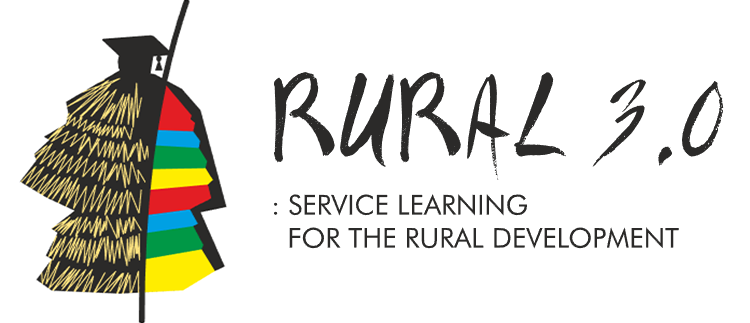
Unibo structure involved: Department of Psychology
Scientific manager: Cinzia Albanesi cinzia.albanesi@unibo.it
Unibo Team: Elvira Cicognani, Antonella Guarino, Alessia Marchi
Web page: https://rural.ffzg.unizg.hr/
Action type: Knowledge Alliances
Project reference: 599382-EPP-1-2018-1-PT-EPPKA2-KA
Start Date: 1/1/2019
End Date: 31/12/2021
Budget
Total: 991.139,50 €
UNIBO: 107.066,00 €
Coordinator: Instituto Politecnico De Viana De Castello (Pt)
Partners:
Higher Education Institutions
- Polytechnic Institute of Viana do Castelo
- University of Vienna
- University of Zagreb
- ERASMUS University of Rotterdam
- Strascheg Center for Entrepreneurship, University of Applied Sciences Munich
- University of Madrid
- Vytautas Magnus University
- University of Bologna
Rural Partners
- LAG AJDeão
- LAG Plenum
- LAG 5
- Stichting Schutsluis Alblasserdam
- LAG Galsinma
- LAG Ammersee
- LAG Kaunas
- GAL L'Altra Romagna
Description
Rural 3.0 is set as a knowledge alliance between different European Higher Education Institutions and rural partners, each with a different history, quite distinct experiences with rural social entrepreneurship and/or rural service-learning, different educational systems, as well as specific community needs regarding the location, politics, and the economy of the different rural communities.
Rural 3.0 intends to bring higher education institutions and rural partners together to work on a common issue - development of the necessary knowledge and skills needed to make changes in rural communities. It supports the modernisation of Europe's HE through the transnational curriculum based on the innovative service-learning approach to teaching and learning that brings students, academics, and the community, together to jointly develop solutions for challenging issues, as well as product and process innovation. It aims to stimulate social entrepreneurship of HEIs* teaching staff and rural entities through transnational cooperation between HEIs and rural partners. In addition to this, new learning and teaching methods will be jointly developed and implemented.
* Higher Education Institutions
Expected Outcomes
- A Report on the needs and the gaps of the main target groups from the eight participating countries;
- A rural SL case study from each of the eight countries;
- A final report on the "State-of-the-art of rural SL education” that will help to identify and transfer best practices;
- A module with courses on rural SL and rural SE;
- Training programs and OERs for LAGs and rural SE practitioners as well as a MOOC for HE teachers on rural SL;
- Digital Collaborative and Learning tools (HUB, Online World Café) and SL Hackathon.
Target Groups
- Rural community organisations (LAGs, rural NGOs, Rural Networks);
- Higher Education Institutions (participating and non-participating)
- Rural beneficiaries (social enterprises, farmers, unemployed ...)
- Higher Education teachers
- Graduate and undergraduate students
Expected Impact
- Participating Academic staff: exchange of experiences and joint research
- Participating Students: new learning through rural SL and virtual mobility
- Participating Organisations: reinforce the network between the community and HEIs
- Beneficiaries of the Services: opportunity to have the identified needs addressed by the students.
- Local and Regional Impact: response to community needs by a variety of stakeholders.
- National Impact: improve the relevance and effectiveness of the HE, thereby contributing to the overall development of the community
- European & International Impact: HEIs and rural organisations working together towards a transnational curriculum based on the innovative approach and OERs
Follow Rural 3.0 on social media to keep up-to-date with the latest research news
- FACEBOOK: Rural 3.0
- INSTAGRAM: Rural.three.zero
- TWITTER: Rural 3.0

